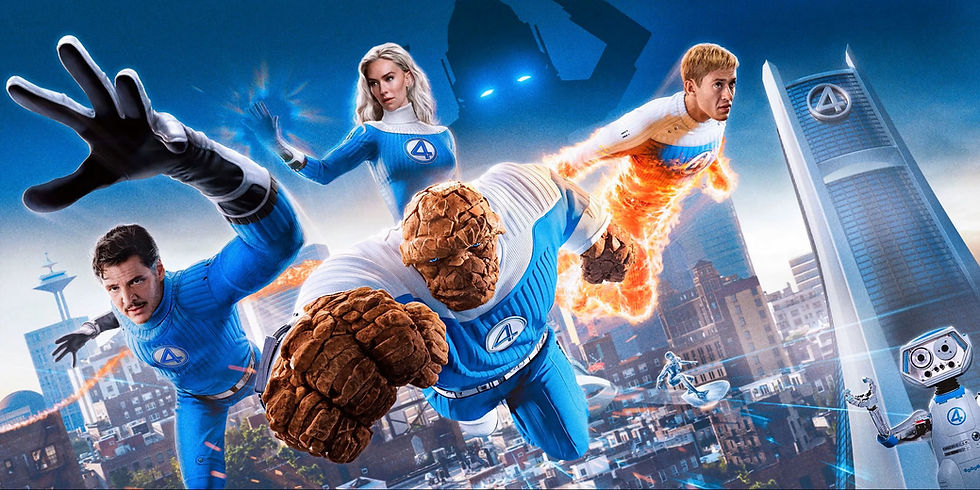'Holmes' is Where the Heart Is
- Oct 8, 2020
- 3 min read
Updated: Dec 31, 2022
Millie Bobby Brown stole the show as Eleven in the popular Netflix series Stranger Things. In Netflix's original film Enola Holmes (2020), Brown shines yet again as Sherlock Holmes' younger yet sharp-as-a-tack sister. How is the rest of the film? Pretty good. It's also perfect for tweens and teenagers looking for a semi-historically-rooted yet relatable hero in the 21st century.
Enola Holmes follows its titular protagonist as she narrates her coming-of-age story to the audience about her quest to find her missing mother (played by Helena Bonham Carter) amidst intertwining murder cases, a family conspiracy, and a political revolution within Victorian England. Sherlock Holmes and his older brother Mycroft (played by Henry Cavill and Sam Clafin, respectively) are also in this movie, and they are not bad either.
As stated at the beginning of this review, Brown shines as Enola (which is backward for "Alone" as she explains in the film). Her charisma, charm, and acting chops elevate this movie considerably, in a seemingly effortless fashion. Like her famous brother, Enola is intellectually and physically practical and resourceful. She is also somewhat inexperienced when interacting with others within the real world and opening up to other people regarding her more vulnerable side. However, that does not mean that Enola's more famous elder brothers, Sherlock and Mycroft, nor the rest of the supporting cast get sidelined for they each have their moments to shine as well, with Cavill's Sherlock not drifting too far away from the emotionally stoic yet intellectually unmatched sleuth while managing to express a gentler and more protective side to him within the confines of the iconic character. Clafin as Mycroft serves as a minor antagonist for the most part, as his well-intended approach to looking after his sister involves having her conform to the outdated societal norms for young women by enrolling her into a finishing school, which in turn makes his decision-making controlling, but somewhat understandable from a historical context. However, the film does not portray Mycroft as monstrous, but rather an ill-fit for looking after her. In terms of sidekicks, Viscount Tewksbury (played by Louis Partridge) serves as a suitable potential candidate for a future sequel (or two) with a surprising amount of brains over brawn.
In term of this movie's direction, Harry Bradbeer borrows a lot from Guy Ritchie's Sherlock Holmes films starring Robert Downey Jr. and Jude Law in terms of the Victorian setting, as well as Ritchie's distinctive visual aesthetic and pacing (the fast-cutting and kinetic action sequences, minus the slow-motion). There is even an action sequence set on and around a moving steam train (not that it is a detractor, just a similarity I noticed). Bradbeer also borrows from the BBC series Sherlock in terms of Sherlock and Mycroft's competitive yet protective relationship. While lacking the kinetic wit that defined said series, it is still engaging to watch.
While the frenetic pacing begins to slow down during the film's second half, Holmes has enough personality and energy in its protagonist to forgive the story's more predictable aspects. In the end, this movie states that young people like the titular protagonist are indeed the future, especially during politically turbulent times like these. I see a great future for the new generation of actors, filmmakers, innovators, detectives, politicians, and activists, who are bound to contribute so much to society that they may end up teaching the older generations a thing or two about how to better their world.
Final Score: 7 out of 10





Comments